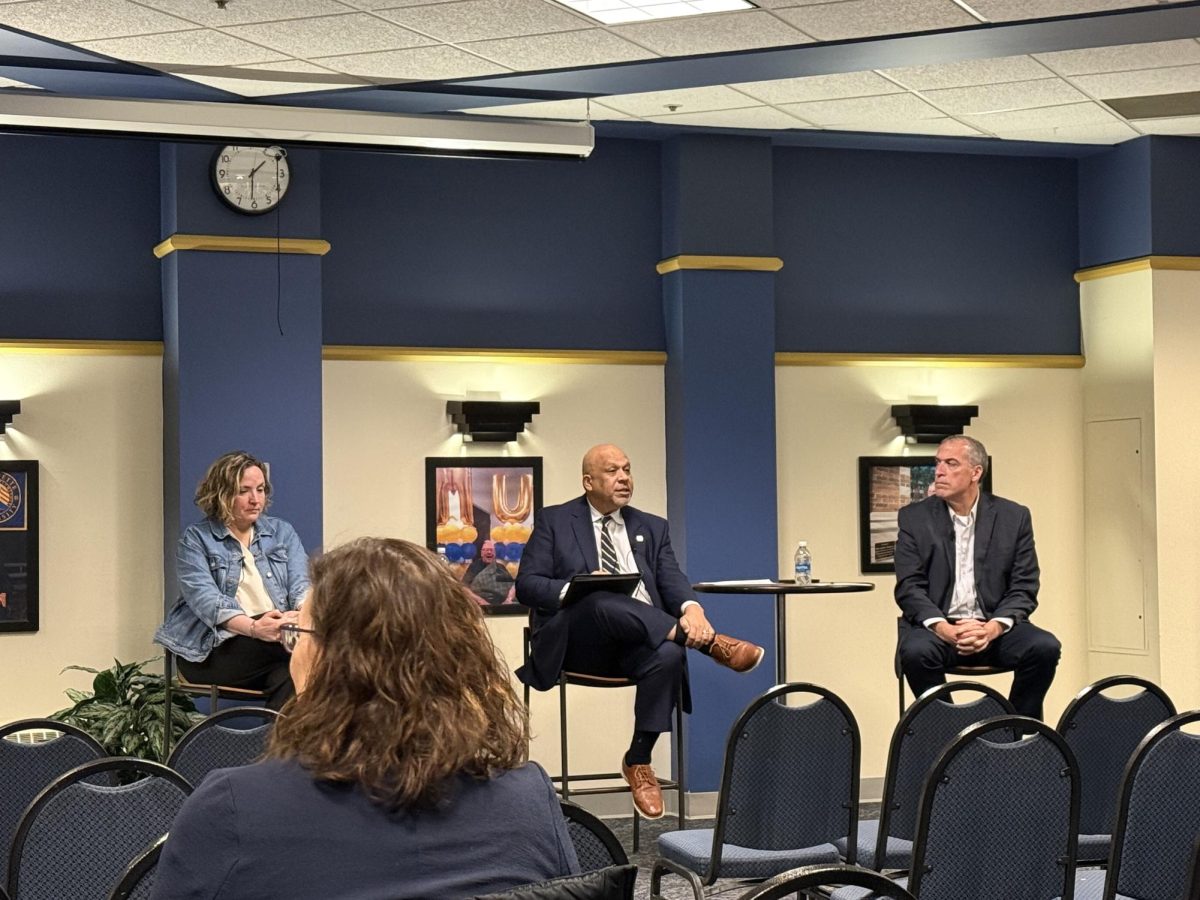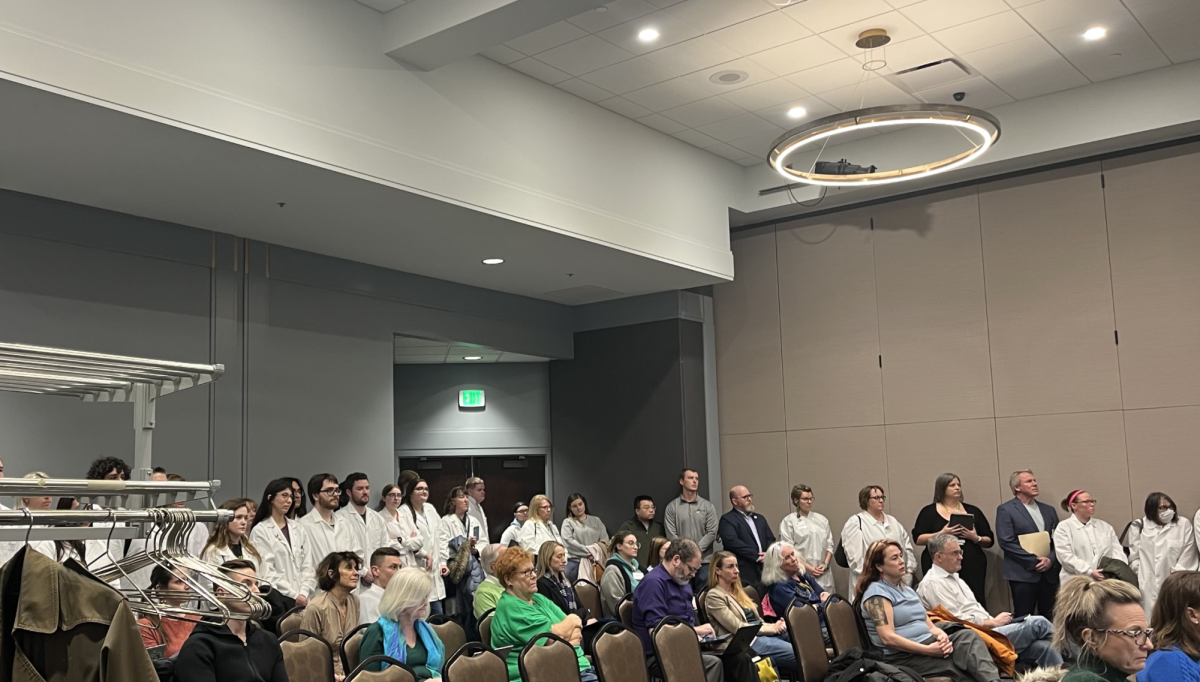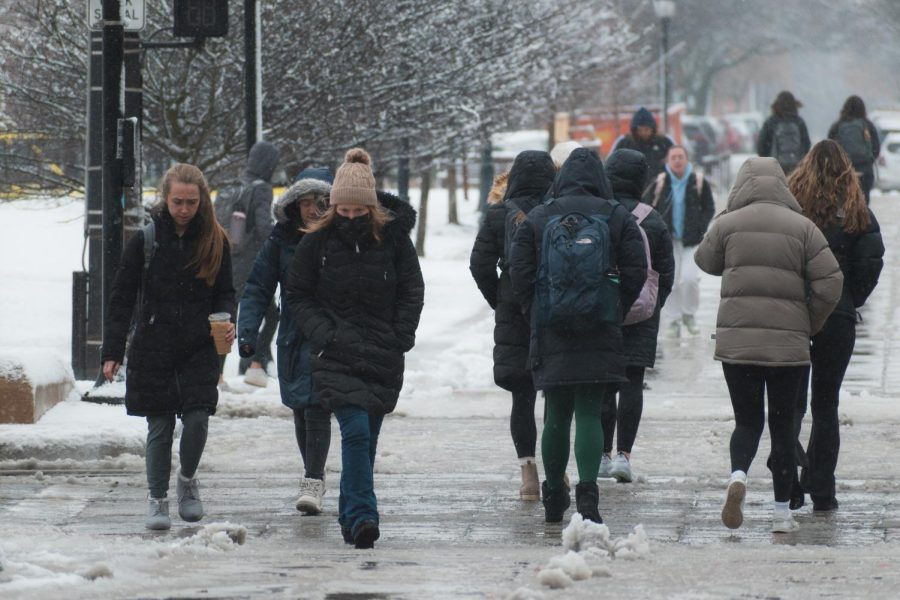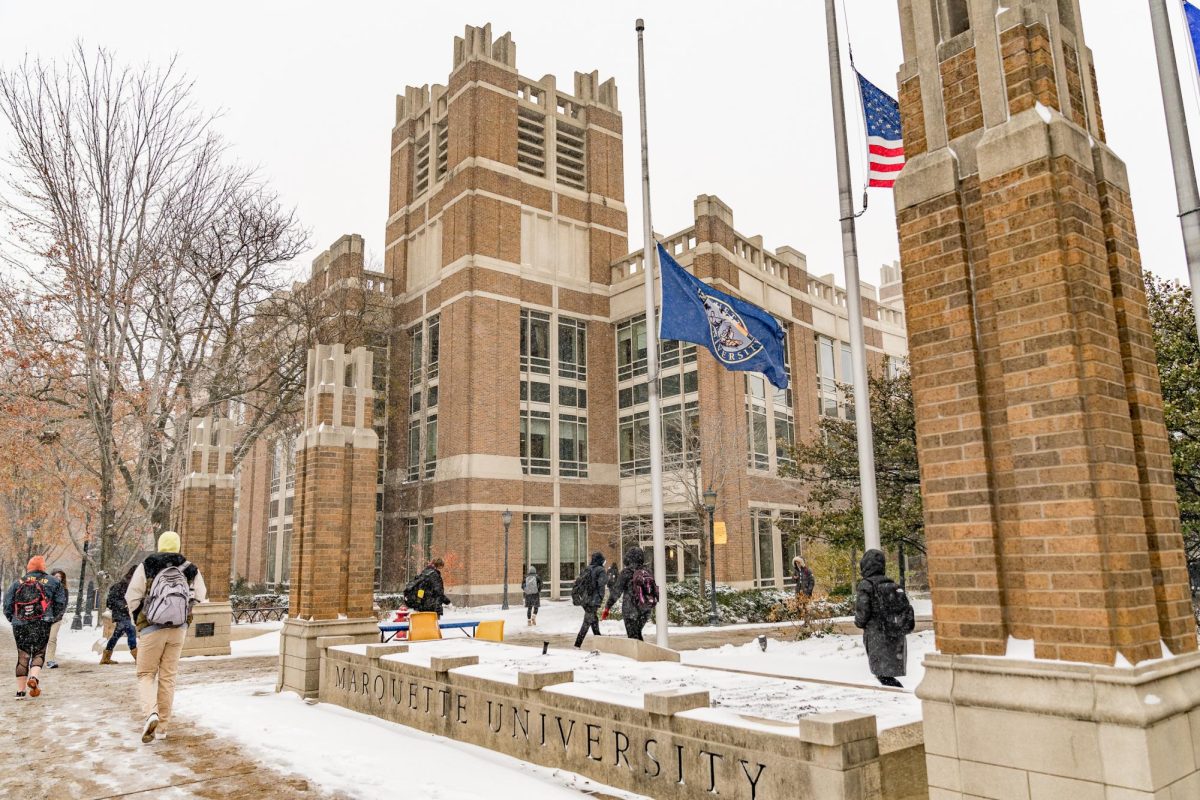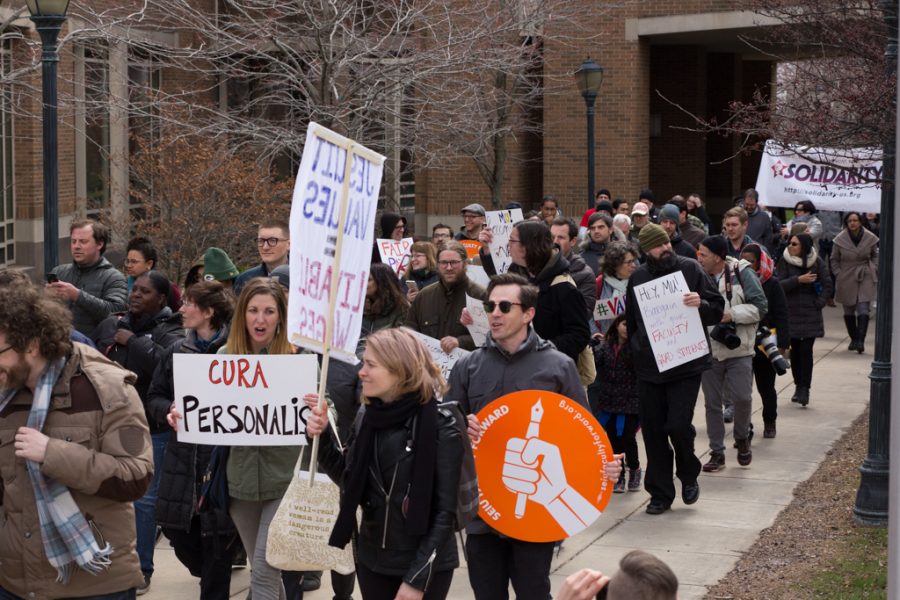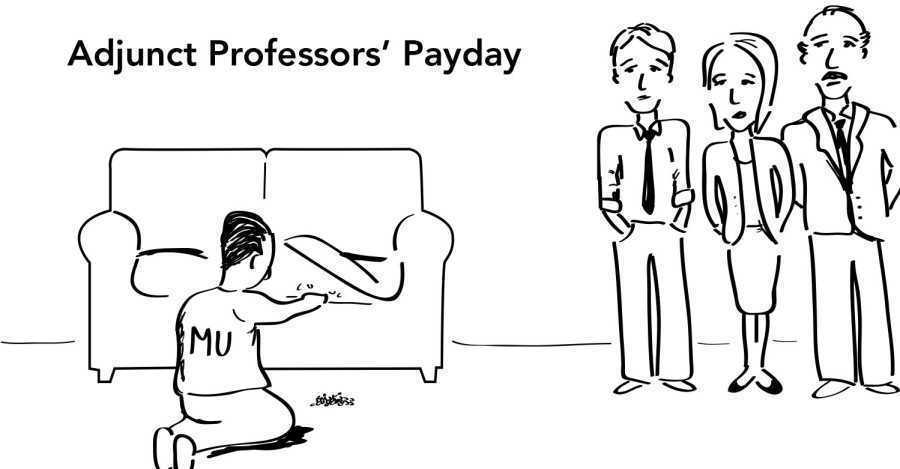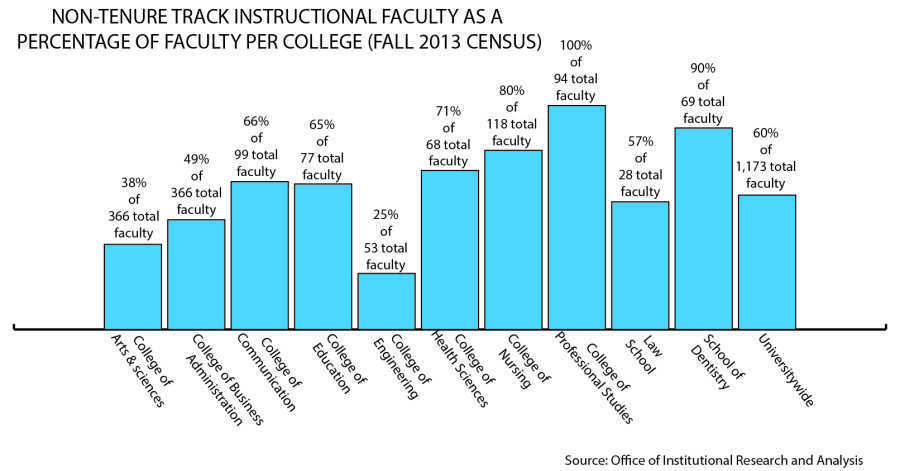Admissions up 9 percent from 2008; one new major, two new minors also approved at the meeting
Faculty grappled with how to approach the use of adjuncts at Marquette during the Academic Senate meeting Monday afternoon.
Angela Sorby, an associate professor of English and chair of the Committee on Academic Policies and Issues, presented a status report of her committee’s evaluation of part-time faculty at Marquette. The report investigates if there is a problem with the part-time faculty system, with inconclusive results.
Adjuncts typically receive only a few thousand dollars per course they teach, and some attempt to support themselves solely on part-time teaching.
Additionally, there is a national trend toward relying on part-time faculty instead of full-time, tenure-track professors.
Sorby’s committee has been tasked with drafting a set of recommendations to be considered by the senate, which has proven difficult because of how the experience of adjuncts varies across departments.
“This is all very vague,” Sorby said. “It’s hard to know what (the committee) should do.”
Some departments, like Professional Studies, value using adjuncts because of the professional experience these faculty members often bring, she said.
But other departments, particularly those in the liberal arts, worry that part-time faculty are being utilized to cut down costs at the expense of the quality of instruction, Sorby said.
These differing perspectives mean the committee has yet to propose a recommendation that can be voted on.
“If this report gets too specific then we’re going to wind up mandating a one-size-fits-all recommendation that won’t fit all,” Sorby said.
Additionally, Sorby said few adjuncts have been willing to voice complaints to her for fear of retribution, making it difficult to specifically identify problems.
Christine Krueger, an associate professor of English and vice-chair of the senate, said she would like to be able to compare statistics for the use of part-time faculty at Marquette to similar institutions in order to establish whether there is a problem here.
As such, Krueger said she was worried this task might be too great for the senate committee to tackle.
“It’s unrealistic to expect faculty members to put this together on their own,” she said.
In other Academic Senate news…
–Provost John Pauly said the university had received more than 13,000 freshman admission applications, up 9 percent from the same time last year and 31 percent from two years ago. Pauly said the difference between this year’s and last year’s numbers is largely made up by more minority students applying to the university.
–The senate approved the creation of a Science, Technology, Engineering or Math major to be used as a second major for Education majors only. The major is funded by a three-year grant from the National Science Foundation, said Margaret Bloom, vice provost for undergraduate programs and teaching. The major would initially accept only six students, though that number could expand to 20, Bloom said.
The senate approved two minors, one in literature of diverse cultures and one in writing-intensive English.


